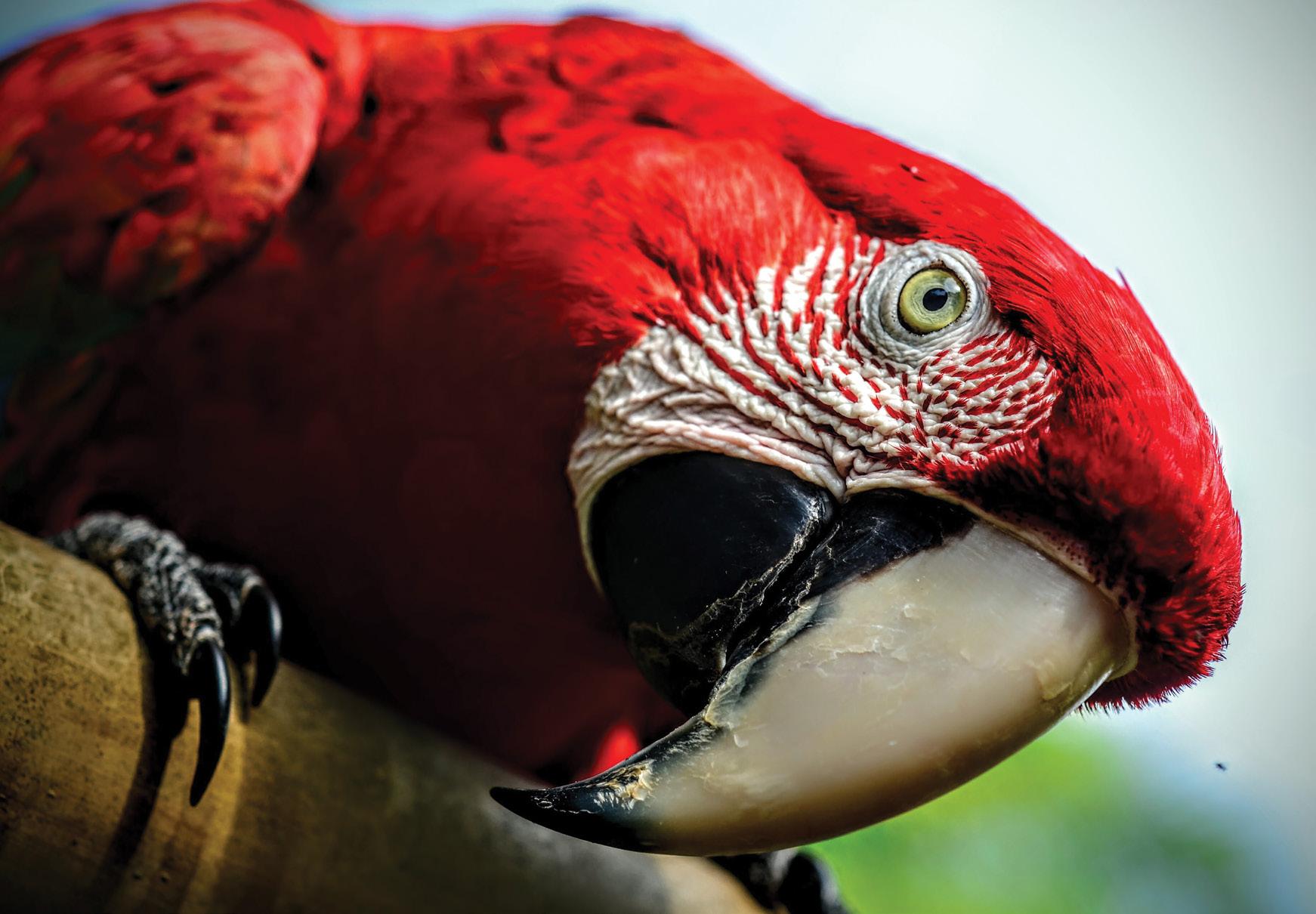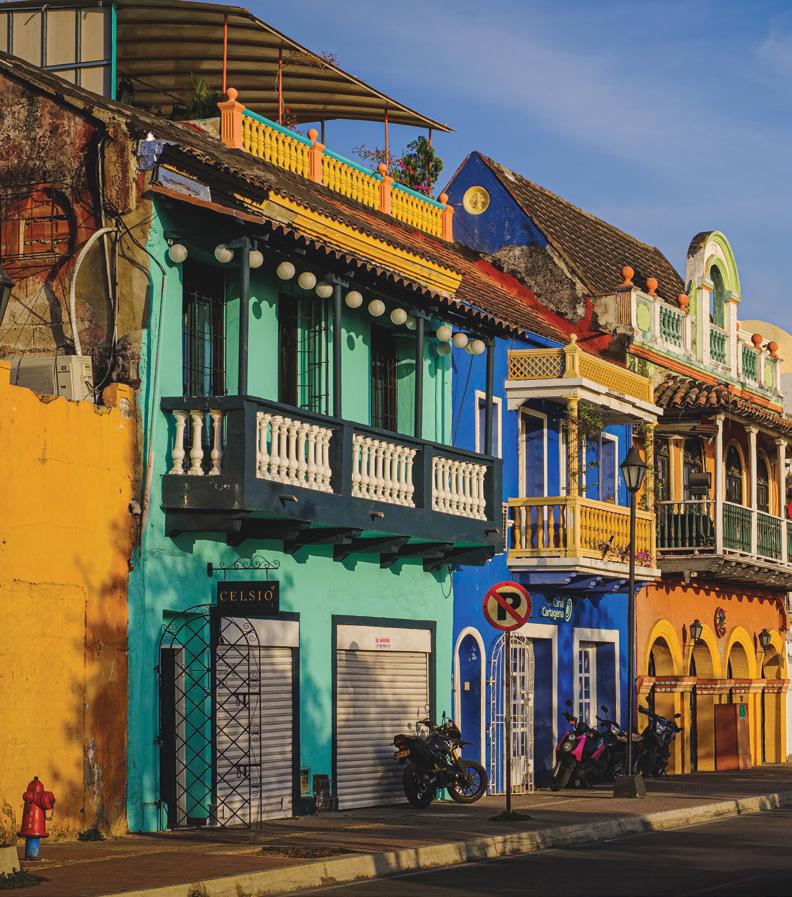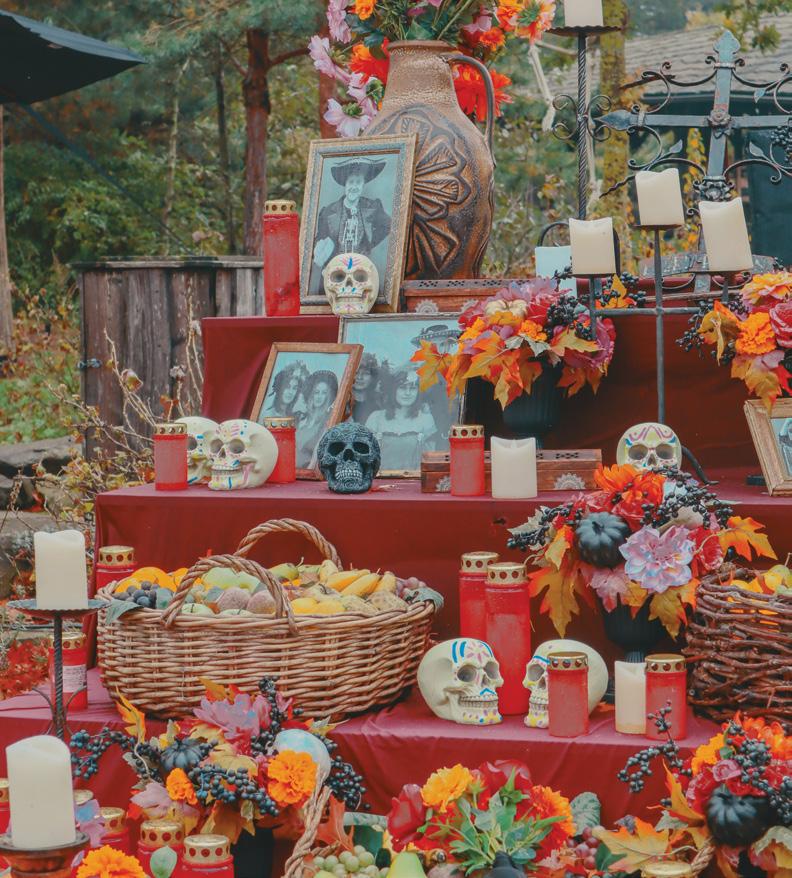
3 minute read
ANIMATE YOUR LATIN AMERICA ADVENTURE
By Christian Baines


Few destinations offer the kaleidoscope of music and colour that is Latin America. No surprise then that animators have drawn inspiration from it to create several hit films. If you’re looking to animate your Latin getaway, these destinations and traditions inspired three of Hollywood’s biggest cartoon hits.
Rio – Rio de Janeiro, Brazil
Rio is a love letter to A Ciudade Maravelhosa through the eyes of a neurotic blue parrot that can’t fly. Where do you find some of Rio’s most colourful feathered residents? The city wraps around Tijuca National Park, a revived urban rainforest that protects over 300 bird species, along with ocelots, howler monkeys and more. Trails abound if you’re feeling energetic, but a half-day tour will take you to some of those spectacular Rio views.
If you want to take to the air yourself, hang-gliding over the city is an unforgettable experience. Christ the Redeemer, atop the Corcovado peak, and the cable car that takes visitors to the top of Sugarloaf Mountain both appear in the film. Our feathered heroes cause chaos on a packed Copacabana Beach, and in the Sambadrome on Carnival, the most important night on Rio’s calendar.
Coco – Mexico and Dia de los Muertos
El Dia de los Muertos, the Day of the Dead, is one of Mexico’s most important family traditions. Unlike Halloween, this is a celebration of loved ones lost, with gifts called ofrendas placed upon home altars that honour the dead. Stealing an ofrenda is a pretty grave offence, and no fictional character knows this better than Coco’s music-loving Miguel, who steals a guitar, only for it to transport him to the land of the dead.
Tourist interest in Dia de los Muertos has commercialized the holiday, but traditions such as calaveras (sugar skulls) and sweet pan de muerto (bread of the dead) live on. This vibrant tradition goes back to the shared Aztec, Maya, and Olmec belief in the inseparable nature of life and death. The arrival of Catholic Europeans moved the festival to the beginning of November. Each October 31, children across the country construct their own altars to invite Angelitos, the spirits of dead children, back for a visit.
So, while it’s a private, important celebration for many Mexican families, it’s not a sombre one. Celebrations vary widely in different parts of Mexico, so consider taking in the festival more than once to experience all it means to various regions. Aguascalientes, San Miguel de Allende, and Oaxaca are among the most famous spots, though Mexico City has since 2016 thrown a lavish parade. If you want to join in the fun, have your face painted as the skeletal La Catrina, regardless of your age or gender (men who wear the makeup are called Catrins or Catrines hombres).
Encanto – Colombia
Encanto’s magical casita captures a crucial aspect of Colombian culture. Magical Realism is Colombia’s contribution to world literature, most notably in the works of Gabriel Garcia Marquez, whose family epic One Thousand Years of Solitude might just be the only Colombia-set story more famous than Encanto right now. Some of Colombia’s highlights can truly feel like works of magic.
The colourful old town of Cartagena on the Caribbean Coast offers up a chequered history and traditions from a wide variety of cultures. Medellin’s transformation from one of the world’s most dangerous cities into a must-see spot for tourists feels nothing short of miraculous. If you’re feeling adventurous, Colombia’s Lost City, the world’s most colourful river, Cano Cristales, and the Las Lagas Sanctuary, all look like they’ve escaped a fantastic storybook. Don’t discount the capital, Bogota, either. You won’t want to miss the evocative Salt Cathedral of Zipaquirá, or the dazzling Gold Museum. Even without magical powers, you can still soar on one of the cable cars that transformed public transit in Bogota and Medellin.










